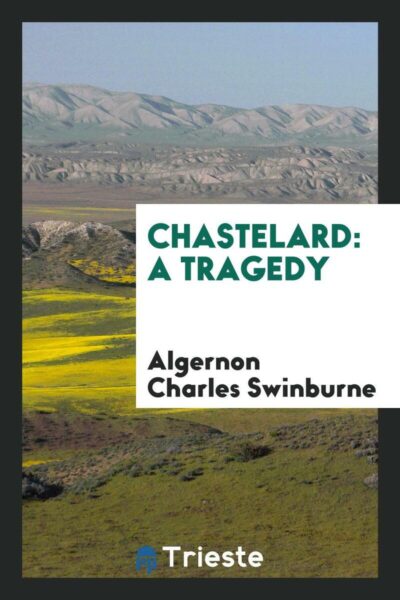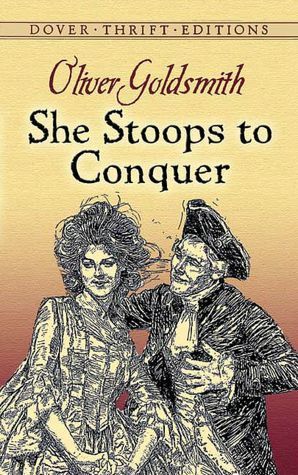123 Results with the "Drama" genre
Adventure Fiction (1164)
Biography (435)
Business & Finance (1)
Children's Literature (124)
Comics (6)
Culture (51)
Dystopian (29)
Fable (86)
Fantasy (1132)
Fantasy (203)
Fiction (1010)
Finance (1)
Gothic Fiction (12)
Historical Fiction (615)
History (122)
Horror (56)
Lifestyle (36)
Literary (404)
Literary Fiction (207)
Memoir (113)
Mystery (422)
Non-fiction (87)
Novel (549)
Paranormal Fiction (96)
Philosophical (182)
Philosophy (45)
Poetry (249)
Political Fiction (14)
Politics (42)
Practical (32)
Psychological (4)
Psychological Thriller (108)
Relationship (6)
Romance Novel (716)
Romantic Melodrama (14)
Satire (91)
Science (46)
Science Fiction (345)
Self-help (68)
Society (65)
Society (2)
Spiritual Growth (1)
story (2)
Thriller (704)
True Crime (56)
view (11)
Women's Fiction (2)
Young Adult (233)
-
Chapter
ACT III. — Chastelard
 Act III begins in the intimate quiet of Queen Mary’s chamber, where the presence of Chastelard hidden nearby turns the stillness into a crucible of suspense. His arrival was not by invitation but by his own reckless devotion, slipping into forbidden territory with a heart that chooses love over safety. Mary Beaton, loyal and troubled, confronts him with the danger he invites. She urges him to flee while there’s time, yet he refuses. His words draw imagery from myth, equating his desire to that of men…
Act III begins in the intimate quiet of Queen Mary’s chamber, where the presence of Chastelard hidden nearby turns the stillness into a crucible of suspense. His arrival was not by invitation but by his own reckless devotion, slipping into forbidden territory with a heart that chooses love over safety. Mary Beaton, loyal and troubled, confronts him with the danger he invites. She urges him to flee while there’s time, yet he refuses. His words draw imagery from myth, equating his desire to that of men…-
37.0 K • Ongoing
-
-
Chapter
SCENE I — Before Holyrood.
 Scene I opens outside Holyrood, where a restless crowd gathers, murmuring with anticipation and judgment. The name on everyone’s lips is Chastelard—a poet, a lover, and now, a man bound for execution. The people, dressed in everyday wear, bring with them opinions sharpened by gossip and colored by class divides. Soldiers stand alongside commoners, their expressions a mix of curiosity and disdain. Whispers spread like fire, suggesting that the Queen herself may have shared more than courtly affection…
Scene I opens outside Holyrood, where a restless crowd gathers, murmuring with anticipation and judgment. The name on everyone’s lips is Chastelard—a poet, a lover, and now, a man bound for execution. The people, dressed in everyday wear, bring with them opinions sharpened by gossip and colored by class divides. Soldiers stand alongside commoners, their expressions a mix of curiosity and disdain. Whispers spread like fire, suggesting that the Queen herself may have shared more than courtly affection…-
37.0 K • Ongoing
-
-
Chapter
SCENE II- In Prison.
 Scene II opens in a prison cell, where the shadows stretch long and the silence carries a weight too heavy for comfort. Chastelard, confined and facing execution, finds himself not in fear but in deep reflection. The room, though dim and still, becomes alive with memories—moments of beauty, passion, and the haunting allure of Queen Mary. Every recollection sharpens his acceptance that love, for him, was never meant to save but to consume. He speaks not as one pleading for life but as someone who has…
Scene II opens in a prison cell, where the shadows stretch long and the silence carries a weight too heavy for comfort. Chastelard, confined and facing execution, finds himself not in fear but in deep reflection. The room, though dim and still, becomes alive with memories—moments of beauty, passion, and the haunting allure of Queen Mary. Every recollection sharpens his acceptance that love, for him, was never meant to save but to consume. He speaks not as one pleading for life but as someone who has…-
37.0 K • Ongoing
-
-
 Scene III unfolds with Queen Mary’s decision placing her at the heart of a deeply human and political conflict, where emotions and duties become dangerously entangled. The Queen, determined to intervene in Chastelard's sentencing, declares a readiness to share in his punishment, a reflection of both her affection and her inner turmoil. She speaks not as a sovereign detached from consequence, but as a woman bound by a growing sense of helplessness. Her commands to Mary Beaton and Mary Carmichael—to…
Scene III unfolds with Queen Mary’s decision placing her at the heart of a deeply human and political conflict, where emotions and duties become dangerously entangled. The Queen, determined to intervene in Chastelard's sentencing, declares a readiness to share in his punishment, a reflection of both her affection and her inner turmoil. She speaks not as a sovereign detached from consequence, but as a woman bound by a growing sense of helplessness. Her commands to Mary Beaton and Mary Carmichael—to…-
37.0 K • Ongoing
-
-
Chapter
Act I — Uncle Vanya
 Act I begins with a lazy stillness that clings to the countryside air, where time moves slowly but tension simmers beneath the calm. The estate, once a model of routine and quiet labor, now holds a household uncertain of its own rhythm. Astrov, the visiting doctor, speaks not only of fatigue but of emotional erosion brought on by years of duty without gratitude. His cynicism is not theatrical—it’s weariness wrapped in intellect. Marina, the caretaker, tries to soothe him with habit and prayer, but her…
Act I begins with a lazy stillness that clings to the countryside air, where time moves slowly but tension simmers beneath the calm. The estate, once a model of routine and quiet labor, now holds a household uncertain of its own rhythm. Astrov, the visiting doctor, speaks not only of fatigue but of emotional erosion brought on by years of duty without gratitude. His cynicism is not theatrical—it’s weariness wrapped in intellect. Marina, the caretaker, tries to soothe him with habit and prayer, but her…-
13.2 K • Ongoing
-
-
Chapter
Act II — Uncle Vanya
 Act II opens with a stillness that blankets the dimly lit dining room. Serebrakoff and Helena sit together, but the closeness between them is only physical. A deep emotional void stretches between their silences. He speaks with bitter honesty about his fears—old age, uselessness, and the indignity of becoming a burden. His words are heavy with regret, as if he feels time slipping from his hands with nothing to show for it. Helena tries to reassure him but her comfort is mechanical, lacking conviction.…
Act II opens with a stillness that blankets the dimly lit dining room. Serebrakoff and Helena sit together, but the closeness between them is only physical. A deep emotional void stretches between their silences. He speaks with bitter honesty about his fears—old age, uselessness, and the indignity of becoming a burden. His words are heavy with regret, as if he feels time slipping from his hands with nothing to show for it. Helena tries to reassure him but her comfort is mechanical, lacking conviction.…-
13.2 K • Ongoing
-
-
Chapter
Act IV — Uncle Vanya
 Act IV unfolds in a room that speaks volumes through its stillness—part office, part resting place, and entirely Voitski’s sanctuary of wasted ambition. Items scattered across desks and shelves reflect a life entangled in obligation, resentment, and dreams deferred. As Marina and Telegin share a quiet moment, the calm feels like a clearing after a storm. The professor and his wife are preparing to leave for Kharkoff, and in their wake, a palpable relief takes hold. Their presence, marked by pretension…
Act IV unfolds in a room that speaks volumes through its stillness—part office, part resting place, and entirely Voitski’s sanctuary of wasted ambition. Items scattered across desks and shelves reflect a life entangled in obligation, resentment, and dreams deferred. As Marina and Telegin share a quiet moment, the calm feels like a clearing after a storm. The professor and his wife are preparing to leave for Kharkoff, and in their wake, a palpable relief takes hold. Their presence, marked by pretension…-
13.2 K • Ongoing
-
-
Chapter
PROLOGUE
 Prologue introduces a world where laughter is fading, and with it, the spirit of traditional comic theatre. Mr. Woodward appears not as a performer filled with jest but as a figure clad in mourning, embodying the decline of the comedic tradition he once served with pride. His sorrow isn’t a performance—it’s genuine, grounded in the observation that the audiences once thrilled by farce and folly now demand polished sentiment. He speaks not only for himself but for a generation of actors who find…
Prologue introduces a world where laughter is fading, and with it, the spirit of traditional comic theatre. Mr. Woodward appears not as a performer filled with jest but as a figure clad in mourning, embodying the decline of the comedic tradition he once served with pride. His sorrow isn’t a performance—it’s genuine, grounded in the observation that the audiences once thrilled by farce and folly now demand polished sentiment. He speaks not only for himself but for a generation of actors who find…-
29.1 K • Ongoing
-
-
Chapter
ACT THE FIRST.
 "Act the First" begins with a clash of values, setting the tone for a story built on contrasts, deception, and social satire. Mrs. Hardcastle complains bitterly about life in the countryside, longing for the style and liveliness of London, which she believes is essential for refinement and sophistication. Her husband, Mr. Hardcastle, disagrees entirely, preferring the quiet dignity of tradition and rural life. The difference in their perspectives frames their marriage as one of opposing tastes, which adds…
"Act the First" begins with a clash of values, setting the tone for a story built on contrasts, deception, and social satire. Mrs. Hardcastle complains bitterly about life in the countryside, longing for the style and liveliness of London, which she believes is essential for refinement and sophistication. Her husband, Mr. Hardcastle, disagrees entirely, preferring the quiet dignity of tradition and rural life. The difference in their perspectives frames their marriage as one of opposing tastes, which adds…-
29.1 K • Ongoing
-
-
Chapter
ACT THE SECOND.
 "Act the Second" unfolds a delightful mix of confusion, comedy, and character revelation, with misunderstandings driving the plot deeper into theatrical mischief. Hardcastle’s efforts to coach his servants on how to act in the presence of gentlemen showcase his attempt to maintain social order. However, their bungled attempts at elegance and clumsy behavior set the stage for comic failure. When Marlow and Hastings arrive, they continue under the mistaken belief that they’ve arrived at an inn.…
"Act the Second" unfolds a delightful mix of confusion, comedy, and character revelation, with misunderstandings driving the plot deeper into theatrical mischief. Hardcastle’s efforts to coach his servants on how to act in the presence of gentlemen showcase his attempt to maintain social order. However, their bungled attempts at elegance and clumsy behavior set the stage for comic failure. When Marlow and Hastings arrive, they continue under the mistaken belief that they’ve arrived at an inn.…-
29.1 K • Ongoing
-
- Previous 1 … 10 11 12 Next
